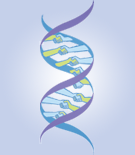User:Benjamin Y. Ko: Difference between revisions
m (→Contact Info) |
|||
| Line 4: | Line 4: | ||
[[Image:OWWEmblem.png|thumb|right|Benjamin Y. Ko (an artistic interpretation)]] | [[Image:OWWEmblem.png|thumb|right|Benjamin Y. Ko (an artistic interpretation)]] | ||
Benjamin Y. Ko | Benjamin Y. Ko <br> | ||
Department of Chemical Engineering | Department of Chemical Engineering <br> | ||
Stauffer III | Stauffer III <br> | ||
381 North-South Mall | 381 North-South Mall <br> | ||
Stanford University | Stanford University <br> | ||
Stanford, CA 94305-5025 | Stanford, CA 94305-5025 <br> | ||
*[[Special:Emailuser/Benjamin Y. Ko|Email me through OpenWetWare]] | *[[Special:Emailuser/Benjamin Y. Ko|Email me through OpenWetWare]] | ||
Revision as of 15:42, 5 September 2013
I am a new member of OpenWetWare!
Contact Info

Benjamin Y. Ko
Department of Chemical Engineering
Stauffer III
381 North-South Mall
Stanford University
Stanford, CA 94305-5025
I work in the Swartz Lab at Stanford University.
Education
- 2010--present, PhD candidate, Stanford University
- 2003, MS Chemical Engineering, Stanford University
- 2002, BS Chemical Engineering, Stanford University
Research interests
- Protein engineering
- Cell-free protein synthesis
- Antibody purification
Prostate cancer is an increasingly prevalent disease for which improved methods of tumor detection are needed in order for new treatment options to be truly safe and effective. My project aims to introduce a novel tool for prostate tumor detection by engineering virus-like particles (VLPs) which are loaded with superparamagnetic iron oxide (SPIO) nanoparticles and surface-coated with antibody fragments. The SPIO nanoparticles, as effective MRI contrast agents, lend sensitivity to these VLP constructs, while the antibody fragments, with affinity to prostate cancer cell surface markers such as PSMA, give the VLPs the ability to target prostate cancer cells with high specificity. Such engineered VLPs have the potential to enable clinicians to make earlier and more accurate diagnoses of prostate cancer, thus helping to improve the survival rate for this deadly disease. The goals of my research are to develop SPIO nanoparticles which are suitable for loading into VLPs, develop production and loading methods for the VLPs, and, in collaboration with colleagues in the School of Medicine, demonstrate the efficacy of these constructs in murine studies.
Publications
- Goldbeter A and Koshland DE Jr. An amplified sensitivity arising from covalent modification in biological systems. Proc Natl Acad Sci U S A. 1981 Nov;78(11):6840-4. DOI:10.1073/pnas.78.11.6840 |
- JACOB F and MONOD J. Genetic regulatory mechanisms in the synthesis of proteins. J Mol Biol. 1961 Jun;3:318-56. DOI:10.1016/s0022-2836(61)80072-7 |
leave a comment about a paper here
- ISBN:0879697164